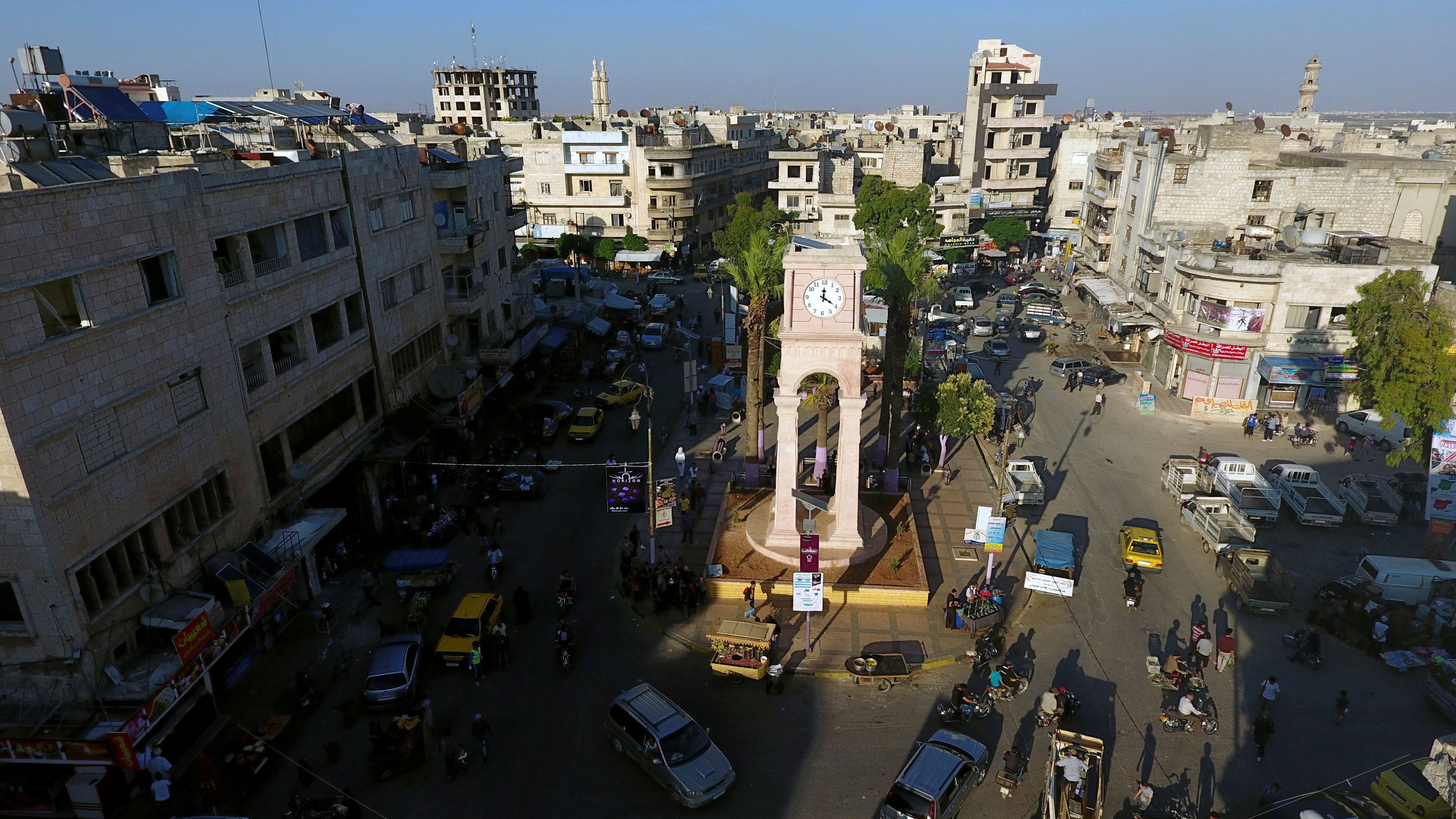September 07, 2018
This may be the final major battle of Syria’s seven-year civil war. In defiance of warnings from the US and Turkish governments, Syrian government forces, with Russian military support, look poised to begin an assault on Idlib province, the last rebel-controlled area in the country. There are tens of thousands of rebel and jihadist fighters in Idlib. Three million civilians, half of them refugees from other regions, are trapped in harm’s way.
The presidents of Russia, Iran, and Turkey are meeting today in Iran to discuss whether large-scale bloodshed can be avoided and how best to manage the fallout. As part of an agreement reached with Russia and Iran, Turkey has placed a small number of its soldiers in 12 observation posts between rebels and government forces to try to block the assault. Assad, Russia, and Iran now want those troops removed.
Syria’s long, bloody conflict has reshaped Middle East alliances and upended European politics. Its final chapter is being monitored closely in capitals around the world. Here are the most directly interested parties:
Syrian President Bashar al-Assad wants to finish the fight so that he can begin to consolidate control of (what’s left of) his country. He’d like to avoid fighting if he can, but Al Qaeda-affiliated rebel groups have vowed to fight to the end.Russia’s Vladimir Putin, Assad’s benefactor, wants to solidify his country’s position as the preeminent outside power in Syria. Like Assad, Russia would prefer to avoid a civilian bloodbath that would further alienate Europe and make it more difficult to raise funds for reconstruction. Yet, there’s no sign yet that threatening moves can force a surrender of rebel and jihadist forces.
Turkey’s Recep Tayyip Erdogan accepts that longtime foe Assad will win the war, but he hopes to avoid another surge of desperate people across his country’s borders. Turkey already hosts more than three million Syrian refugees and is grappling with an economic crisis.
Iran’s Hassan Rouhani is offering his country as a mediator, but Iran’s longer-term concern centers on expanding military ties with Assad and avoiding any effort by Russia to minimize its influence with his government. “The terrorists must be purged,” said Iran’s foreign minister on Monday.
Germany’s Angela Merkel knows that Assad must control major cities if Syria is to be stabilized, but mindful of the ways in which refugees have transformed European politics, wants to avoid a humanitarian catastrophe and begin to plan for Syria’s reconstruction.
The Trump administration has warned it will respond if Syria’s military uses banned weapons. “Don’t let this happen,” tweeted Trump. “All eyes on the actions of Assad, Russia, and Iran in Idlib. #NoChemicalWeapons,” tweeted US ambassador to the UN Nikki Haley. “Sergey Lavrov is defending Syrian and Russian assault on #Idlib. The Russians and Assad agreed not to permit this,” tweeted Secretary of State Mike Pompeo.
The UN and relief organizations, fearful this fight will kill hundreds of thousands of civilians and create a humanitarian emergency, want Syrian and Russian forces to allow an evacuation corridor to move civilians to safer areas.
The bottom line: This seven-year civil war has already killed or displaced half the people living in Syria when fighting began, but there is good cause for concern that the final battle may prove the bloodiest of them all. The fallout will be felt for years to come.
More For You
Bad Bunny during the Super Bowl LX halftime show press conference at Moscone Center.
Kirby Lee-Imagn Images
100 million: The number of people expected to watch the Super Bowl halftime performance with Bad Bunny, the Puerto Rican superstar and newly minted Album of the Year winner at the Grammys.
Most Popular
Think you know what's going on around the world? Here's your chance to prove it.
- YouTube
An imminent US airstrike on iran is not only possible, it's probable.
Americans are moving less — and renting more. Cooling migration and rising vacancy rates, especially across the Sunbelt, have flattened rent growth and given renters new leverage. For many lower-income households, that relief is beginning to show up in discretionary spending. Explore what's changing in US housing by subscribing to Bank of America Institute.
© 2025 GZERO Media. All Rights Reserved | A Eurasia Group media company.
